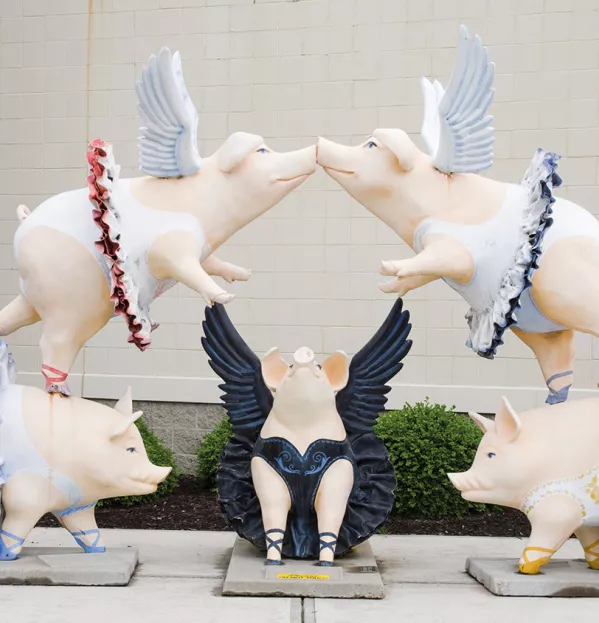“I really like Donald Trump, Ms Rose.”
There are moments in teaching when I have to remind my face of its obligation to make a supportive and encouraging shape. This was one of them.
Every Wednesday, I select a news story to discuss in class so that we can all go home smug in the knowledge we have Engaged with Real World Issues. On this particular week, not long after Trump had assumed the presidency, I sifted through articles about how he may indeed be the fourth horseman of the apocalypse and the world will probably end by Friday...and I found a story about a dancing pig.
Now I’ll admit that this might not have been news of the most earth-shattering importance, but at least it was safe, right? The ugliness of politics wouldn’t be slipping into my classroom today, no sir. Not on my watch. More importantly, I could be certain I wouldn’t accidentally let my carefully-crafted mask of neutrality slip. My class, however, were not to be placated.
“But what about the wall, Ms Rose?”
“I heard that Donald Trump won’t let Muslims go anywhere.”
“Yeah, and Mo Farah can’t even go to the Olympics anymore.”
In the midst of the storm of 25 indignant eight-year-olds, one voice offers a different opinion.
“But at least he’s doing what he said he would. I don’t know, Ms Rose, but I think he’s quite a nice man.”
What I am far too slow to recognise is that my sterilised, sanitised news article is not stopping politics from being brought into the classroom. Politics is carried in every morning, tucked inside the bags and the brains of the children who enter, squeezed from what they have watched and overheard and discussed.
Remarkably, I found that I was proud of this lad and his willingness to speak his mind honestly, and proud of the reactions of my class, who were listening to him thoughtfully and disagreeing with him kindly.
This is what I want for these children: a space where we don’t shy away from the big issues and we don’t have to agree in order to preserve some sort of pretend peace. Where we can work out our opinions in the full knowledge that whatever we discuss will not change the fundamental respect we have for one another.
Politics doesn’t have to be as divisive as it often is. In eight to 10 years, when this class of children enter the polling booths for the very first time, I won’t give a fig whether I have influenced where they put their first X.
I will, however, fight tooth and nail to influence the manner in which they write it - with thoughtfulness, kindness and respect.
Joanna Rose is a P4 teacher in Dundee
